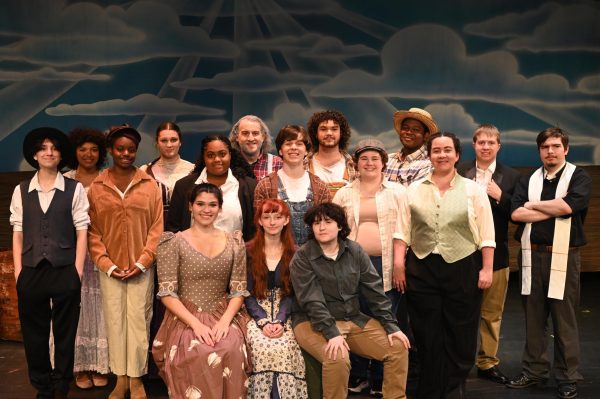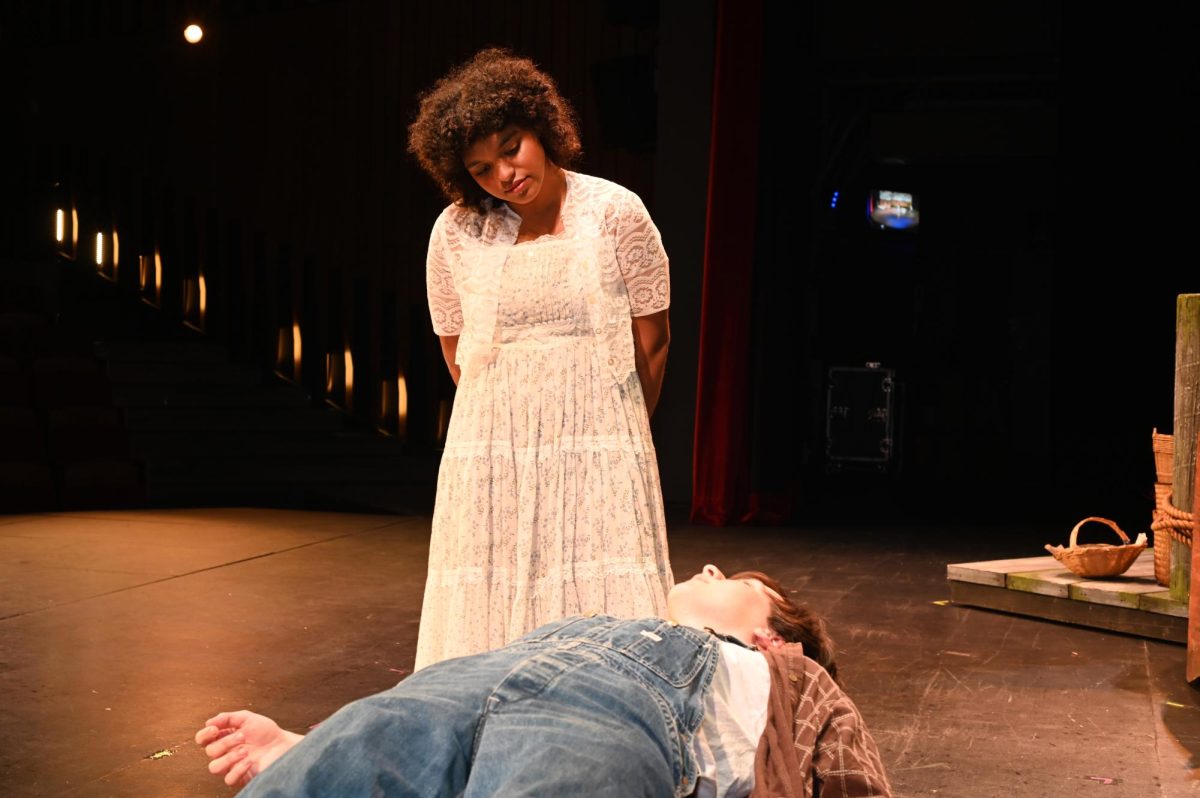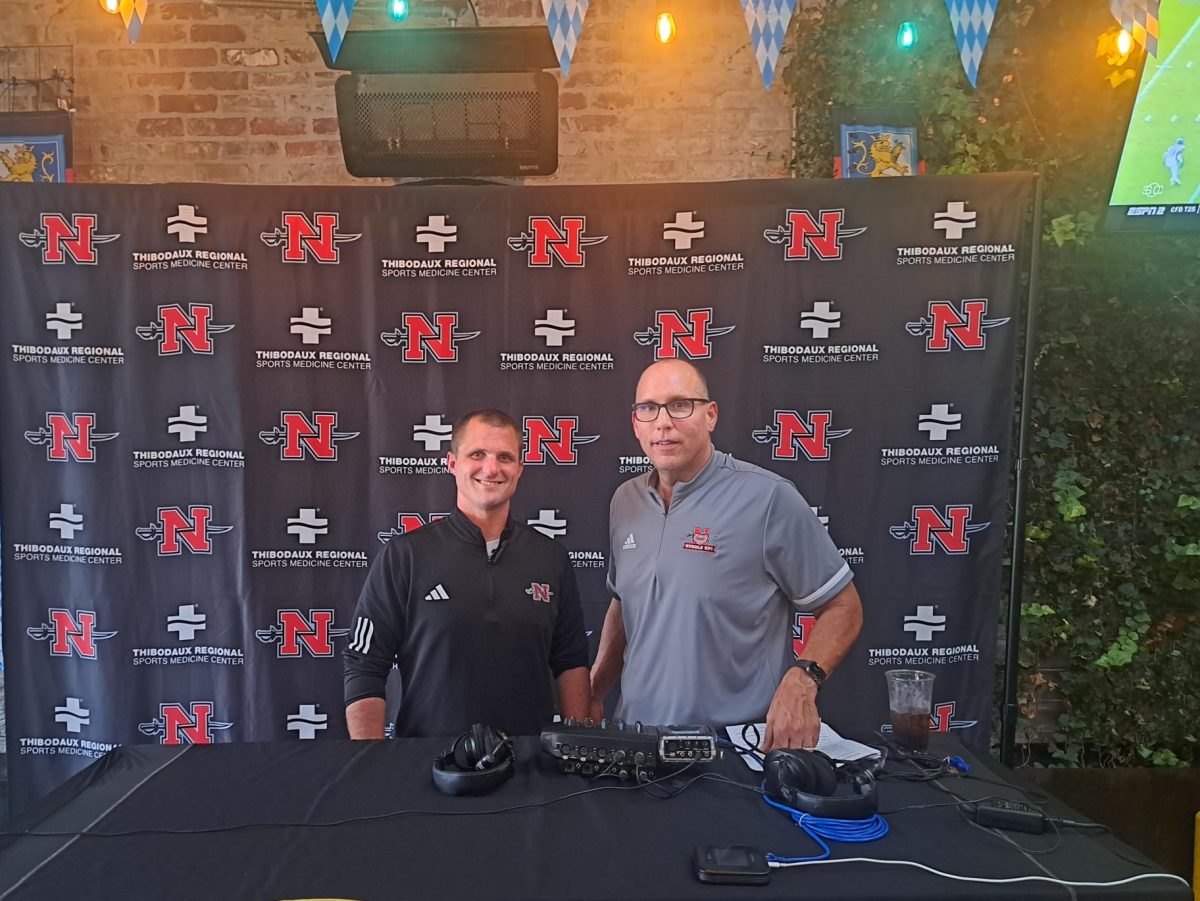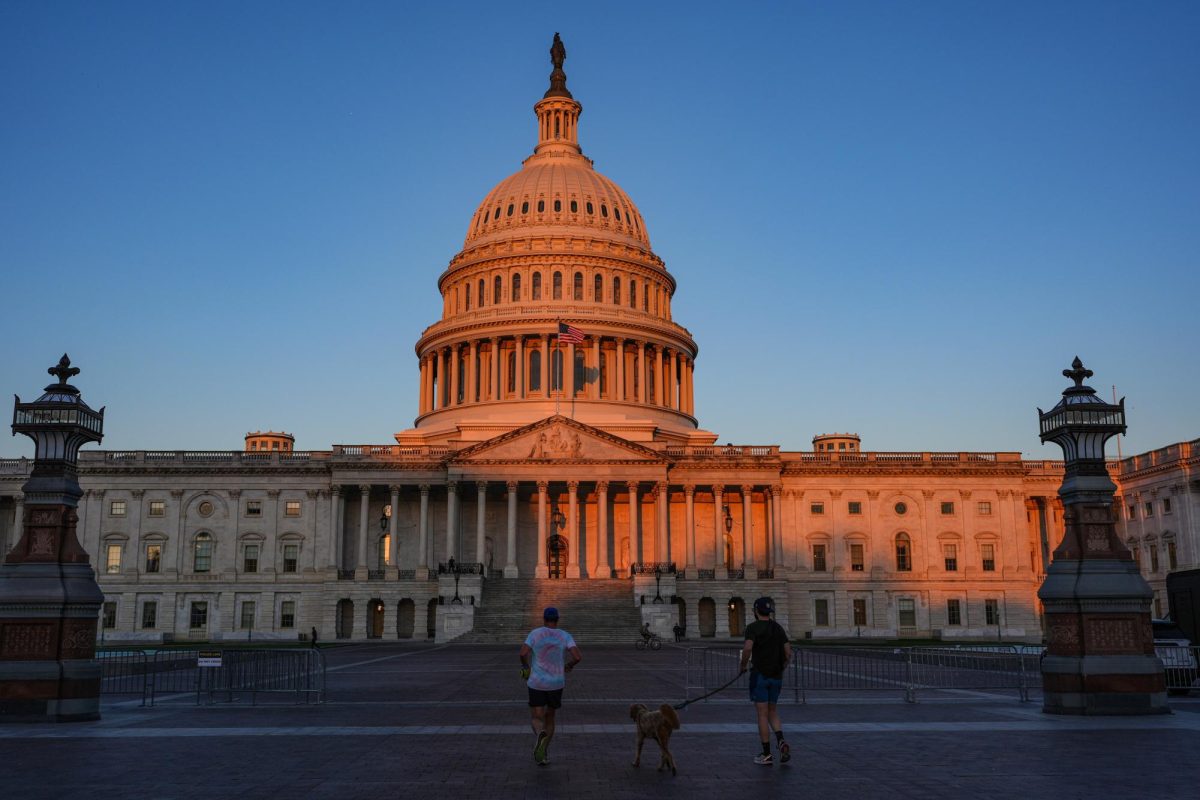The Nicholls Players brought history and tragedy to life with “Tant que Durera la Terre” (As Long as the Earth Lasts), showcased at the Mary and Al Danos Theater on Oct. 9. The show is in partnership with Jefferson Performing Arts, which helped with the creation of many of the set pieces.
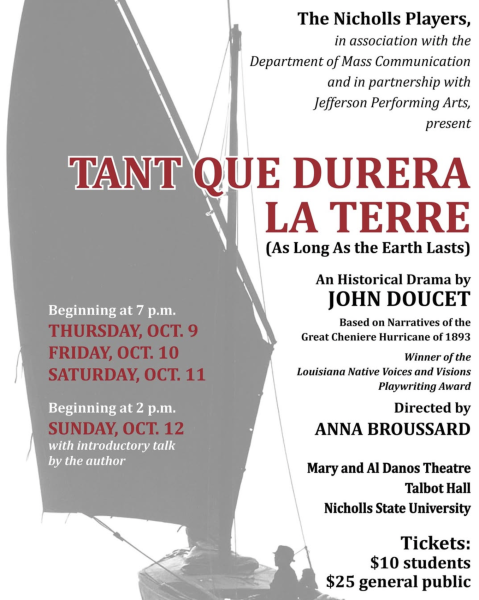
The play takes place during the events of the 1893 Cheniere Caminada hurricane, which killed more than 2,000 people in the Cheniere Caminada fishing community.
The community is the largest coastal fishing village in Louisiana history, and the storm remains one of the deadliest hurricanes in Louisiana history.
John Doucet, dean of the College of Science and Technology, wrote the play 32 years ago, and he said the piece is close to his heart.
Doucet said that many of his great-great-grandparents lived on the coast during the storm.
“What got me to write this play was realizing that my ancestors were involved,” Doucet said. “It’s hard for me to watch the play because of ties I have to it.”
Doucet said the name “Tant que Durera la Terre” comes from a French translation of the Bible in Genesis 8:22. The title is a metaphor for the story of Noah’s flood and the tragedy of the play.
The Story Unfolds
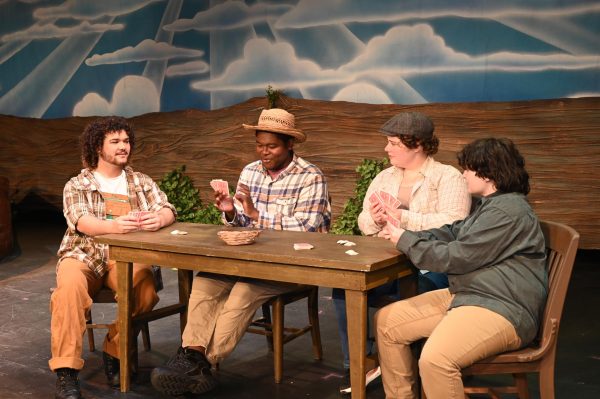
The play mainly follows Camille (Charles Tenney) and his father, Frederique (Alex Terrebonne),
Camille shares his interest in wanting to become educated and work for the newspaper.
His father, Frederique, a fisherman, wants his son to follow in his footsteps.
This scene tackles an interesting dynamic of a son trying to become more than the confines of his family — becoming his own person and following his dreams.
The following scene shows Frederique in a bar with Prosperi (Jaden Cheathem), Marco (Riley Tucker), Prosperi’s son Cyrior (Daniya Jones), Pierre Lee (Harley Stephens) and an old man named Grand Père (Nicholas Dorr) asleep in a rocking chair.
The group challenges Frederique’s idea of not having Camille go to school. They say that boys nowadays go to school, and education is what’s important now.
Frederique combats the ideas and says the world needs men who use their hands, and that’s what his son will be.
A girl named Chandeleur (Ariana Walker) enters the scene, to which the group says that she’s the kind of woman men who go to school get to be with. Frederique disregards the comments again and says that his boy will be able to provide everything a woman like Chandeleur would ever need.
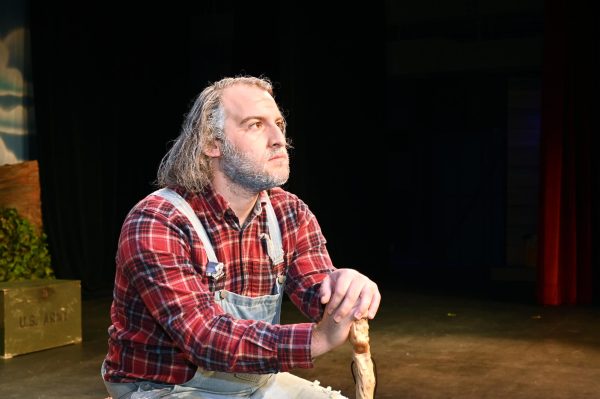
Père enters the scene as Chandeleur leaves after an argument with Camille.
He tells Camille that he’s stubborn and doesn’t understand women, to which Camille stubbornly disagrees.
The scene ends with the Père sitting on a stump and warning the audience.
“Trees protect you from the wind, stumps let you die.”
After Intermission
The play continues with Père sitting on the same stump as before. He says the air feels different, and a storm is coming.
Père appears to serve as the classic “grumpy old man” trope, where no one believes him due to his old age, but he’s sharing his wisdom and experience.
The following scene sees Camille sharing a letter from his friend from the city, Thomas (Abigail Waldron). He shows the letter to Cyrior, his sister Amelie (Cloey Landrum) and Bernadette (Ellie Wood).
Camille’s parents, Frederique and Petite (Jadyn Solet), enter the scene, telling him to get ready for church. To which Camille yells at his mother that he just wants to learn to read.
The scene also serves as a defining moment for Camille as he learns Chandeleur is marrying a man named Emile (Alex Cucullu). The four characters run off as they plan to object to the wedding.
The wedding ceremony proceeds without Camille stopping it and the group stops to pray for protection as the storm approaches.
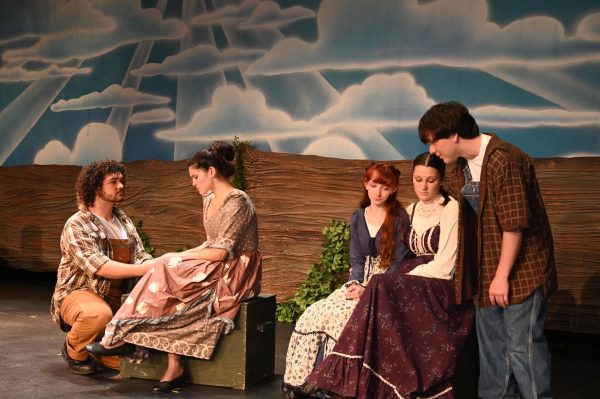
The following scene is the most devastating of the play as Father Grimaud (Andrew Thibodaux) pleads that God save the innocent lives.
Voices can be heard crying and pleading in the background.
The scene ends with Father Grimaud falling to his knees in agony.
“I can’t save you,” Grimaud said.
After these events, emotions of heartbreak and grief are shown.
Petite experiences “survivor’s guilt” where she asks why she and her family are the ones who get to live.
Father Grimaud then shows the dynamic of how morals and religion can be tested in times of tragedy.
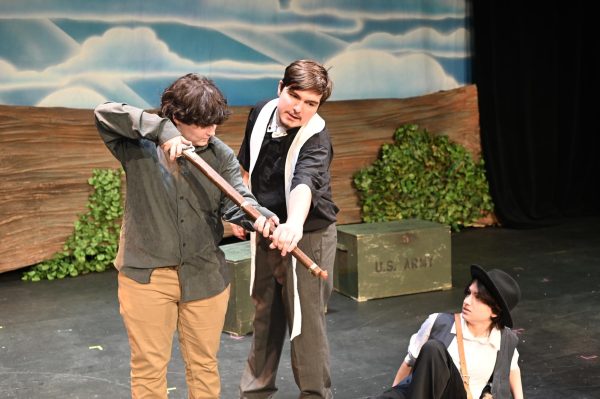
Marco enters the scene with a robber at gunpoint.
The thief is taking jewelry off dead bodies, to which Grimaud condemns them and tells Marco to kill the man.
The play concludes moments after the robber runs off and Cyrior stumbles on the stage, reuniting with his friends after the tragedy.
As the curtain closed, the audience sat in silence for a moment—the weight of the story sinking in.
What had started as a history lesson had become something far more intimate: a reflection on survival, loss, and the roots of the Nicholls community itself.
Après la Représentation (After the Performance)
After the play, Doucet spoke on some of the many themes shown throughout the play and some important history in the creation of Nicholls State University.
“There was no school in Cheniere Caminada,” Doucet said. “The survivors formed much of Lafourche Parish after the hurricane. It was difficult to get teachers down in the bayou to teach these kids. So they built Nicholls State University.”
Doucet’s comments tied the tragedy’s legacy to the roots of education and resilience in the region; themes that carried through both the play and the history it represents.
Following the performance, cast members reflected on what it meant to bring such a story to life.
Jadyn Solet, who played Petite/Rose, explained her connection to the play by having family so close to where the tragedy occurred.
“My grandparents are from Dulac, and I feel a lot of what this play embodies,” Solet said. “Thinking about some of the lines and when Rosalie comes out and talks about her baby dying… It’s heart-wrenching reading that in the script. I pull that out of my chest and perform it on stage.”
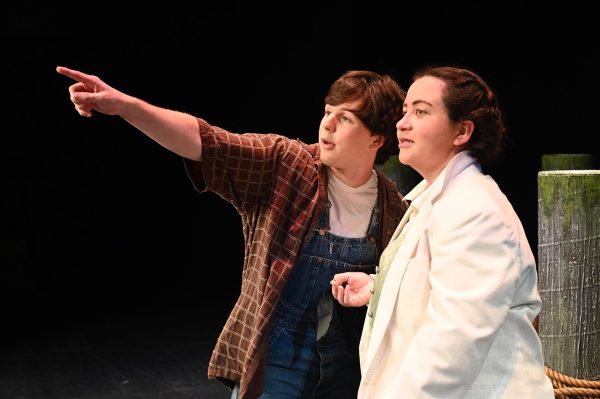
Charles Tenney, who played Camille, explained the intensity of playing the lead role.
“It’s a lot,” Tenney said. “It was a big time dedication, and I had to skip a lot of work so I could focus on my lines.”
Tenney said he wants to pursue acting and the fame is only a small part of it.
“I’d like to be in a lot of films and be out there,” Tenney said. “Not a household name, but I’d just like to be known. If I can help people with their problems, they can see it on screen and not feel alone, then I’m happy with what I’m doing.”
Tenney’s reflections on the experience mirror the dedication seen across the cast. Director Anna Broussard said the play represents how art brings people together.
“People will work on what they love,” Broussard said. “No one’s getting paid to do this. These are all volunteers from different majors. It’s speaks to the larger community that people like to do stuff that they care about.”
Broussard has extensive theatre experience with over 20 years working on various productions either as a performer or behind the scenes.
Broussard’s message captured the spirit of “Tant que Durera la Terre”—a story of resilience, community and passion that continues to echo through Louisiana’s history.
For the Nicholls Players, that legacy lived on not just in their performance, but in their love for the stories that shape their home.
